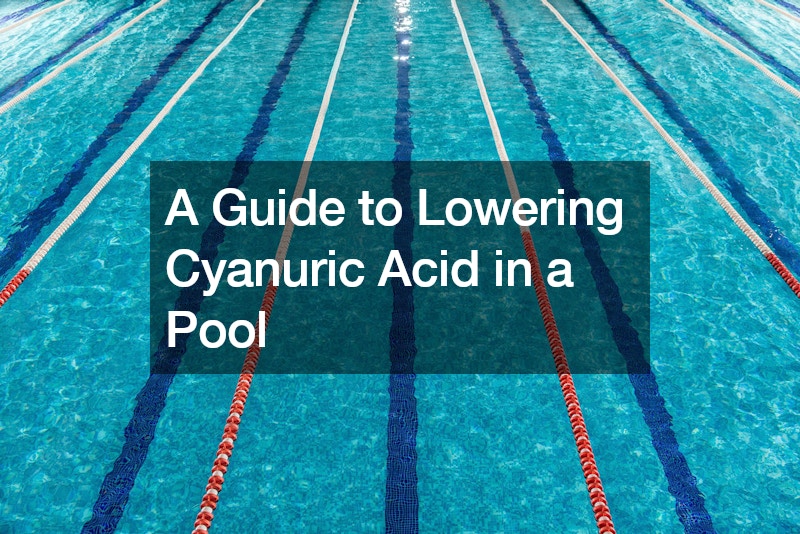
As a pool owner, striking a perfect water chemistry balance in your pool can seem like a never-ending task. However, most individuals use other chemicals like cyanuric acid alongside chlorine to improve its use and effectiveness as shown in the video. If you’re coming across cyanuric acid for the first time, and wondering what purpose it serves, then think of it as a chlorine protector.
The main use of this chemical is to maintain and protect chlorine in your pool water – and sometimes, cyanuric acid is known as a pool water conditioner or stabilizer.
Some pool owners assume that chlorine is enough in their pools, but this is a mistake because when chlorine is left on its own, it won’t last longer. Chlorine compounds are sensitive to the sun’s UV rays, which when left unprotected, the sun’s rays will weaken and break chlorine particles – and most probably leave your pool water through evaporation.
Just like other pool chemicals, it’s essential to continuously test the level of cyanuric acid in your pool water. Regular testing helps you identify and prevent any potential problems before they occur – and basically, the CYA level should be around 20 – 100 ppm (parts per million).
Generally, chlorine cannot withstand the sun’s UV rays on its own and that’s why cyanuric acid is important, since it acts as a sunscreen for your pool water chlorine. It ensures your water chlorine is shielded from the sun and improves its performance and efficiency.
.






